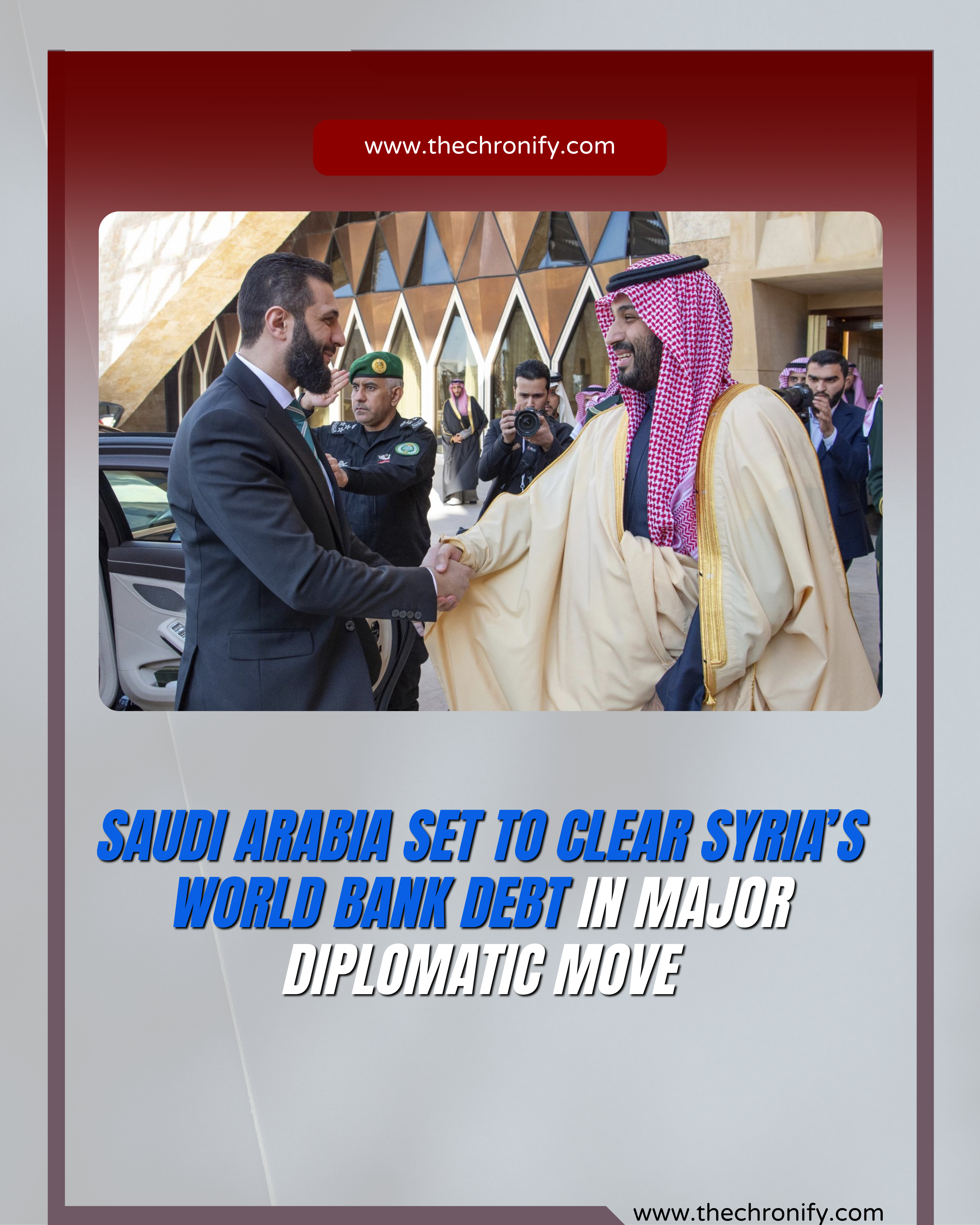Saudi Arabia Reportedly Plans to Settle Syria’s World Bank Debt, Paving Way for Reconstruction Aid
Saudi Arabia is reportedly preparing to cover Syria’s outstanding debt to the World Bank—an estimated $15 million—potentially unlocking new financial aid for the country’s recovery efforts. According to sources cited by Reuters on April 14, this move could mark the first direct financial gesture from Riyadh toward Damascus since the fall of former President Bashar al-Assad last year.
The settlement of this debt is seen as a necessary step before Syria can qualify for additional funding from the World Bank, including grants for infrastructure rehabilitation and public sector salary support. Syria has struggled to resolve the debt on its own due to a persistent shortage of foreign currency.
A representative from the Saudi Ministry of Finance declined to confirm the reports, stating, “We do not comment on speculation but make official announcements when decisions are finalized.”
As part of the ongoing discussions, a World Bank technical delegation met with Syria’s Finance Minister, Mohammed Yosr Bernieh, on April 14. It was the first publicly acknowledged meeting between the institution and Syrian officials. Talks reportedly focused on the impact of long-standing sanctions and the financial strains inherited from previous governance.
Syria is also preparing to send an official delegation to Washington this month to attend the spring meetings of the World Bank and International Monetary Fund. This visit will be the first by Syrian representatives to the United States since the change in government.
The Saudi initiative follows a recent announcement from Qatar, which intends to supply natural gas to Syria via Jordan in a bid to help ease the country’s ongoing electricity crisis.
While the U.S. maintains economic sanctions imposed during Assad’s tenure, a six-month humanitarian waiver introduced in January has had limited effect on facilitating financial relief. However, Saudi Arabia’s potential debt repayment could signal a shift in regional engagement with post-conflict Syria, especially in the context of rebuilding critical infrastructure.

